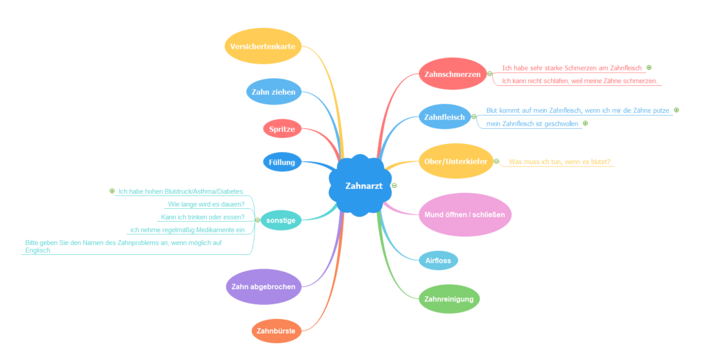




Are you planning to study or live in Germany? If the answer is 'yes,' then welcome! You are on board! Let's explore my blog on learning German in your busy schedule.
Need help with all the German grammar rules? No need to stress! My blog has got your back with some helpful tips and tricks to make learning German a breeze.
Don’t be afraid to use German when you need help, even if you’re not confident in your grammar. This is especially useful when buying groceries at supermarkets or asking for directions or locations at the bus or train station. Gradually, you’ll become more comfortable, and people will help you improve your language skills.
"Listening is another way of learning. You can rewatch your favorite movie in German language to nourish your vocabulary."
Enjoy your favorite movies or TV shows in German! Whether you’re a fan of Friends, Harry Potter, or Indian cinema like „Kal Ho Naa Ho,“ grab your laptop or phone and search for a dubbed version without subtitles. Focusing on subtitles can make it hard to catch all the verbs and prepositions. Take it easy and write down any new words or phrases in your notebook.
Make your own mind map! If you prefer not to use any apps or gadgets, grab a notebook, pen, and highlighters. Draw your situation or anything you want to convey in German. For example, imagine you have a dentist appointment tomorrow and prepare all the necessary words to communicate with your doctor. Look at the picture and use the words provided to practice communication at the doctor’s office.
"Make your own Mindmap! ... Draw your situation or anything you want to tell in German."
Enroll in a language school nearby. Do not miss any classes unless there is an emergency. If you can attend all the lectures, it will help you to learn the language faster than the others. Do your homework; furthermore, give 30 minutes daily to recap the materials you exercised in class each day.
Get a library card to borrow books. Start with preschool books to learn new words. If you are an advanced learner of the German language (level A2 or B1), storybooks are waiting for you!
It’s important to find a tandem partner to practice language skills, but be sure to differentiate between a partner and a romantic relationship. Choose someone with similar language ability and schedule practice sessions, focusing on a topic (e.g., Hobby or Freizeitaktivitäten). Ask four different type of questions such as, ‚Wo‘; ‚Wann‘, ‚Wer‘,’Was‘. Take turns explaining the topic and enrich your vocabulary by noting new words in your notebook.
It’s time to review some important German grammar concepts, such as ‚Modalverben,‘ ‚Imperativsätze,‘ ‚Ja-/Nein-Frage,‘ Trennbare Verben, and ‚Zeitadverbien.‘ Always revise these materials and use adverbs like ‚zuerst, dann, später and zum schluss‘ when explaining a situation. Take notes and make learning a habit!
You can also have a look at this blog as well :
https://www.study-in-germany.de/en/germany/discover-germany/german-language/
I'm a medical graduate (Mbbs) and now i want to do PG from Germany. My question is there pg is fully funded or with tuition fee (in German language) and 2nd one for admission in Germany for PG programs we need only License (test and internship) after MBBS?? Please answer me
Hi, Germany is taught under the German "State Examination" and takes six years. There are no postgraduate courses for medicine or dentistry in Germany because these subjects are not split into a bachelor’s and a master’s degree. Also, there are no courses offered in English, so you will need a very high German proficiency to complete the programme and pass the examinations. Also, you may have a look at this website, where you can find helpful comments on medicine in Germany. The website is designed to help doctors and other interested users learn about "Health system in Germany". It also provides the addresses of university hospitals in Germany 👉 https://www.medknowledge.de/site-map/articles/269-germany/2869-medicine-in-germany-overview.html. To get a first general overview of the topic, please read on here 👉 https://www.study-in-germany.de/en/plan-your-studies/study-options/programme/medical-studies-and-specialist-training/. If you have some more specific questions, you can contact us by email using our contact form 👉 https://www.study-in-germany.de/en/get-in-touch/contact/. We can address your specific case in much more detail via email. Good luck and best wishes! Your Study in Germany-Team 👋🇩🇪
Assalamualikum mam. I appreciate your writing. PhD in Environmental Science is free in your university? it is in English or German language? Thanks in advance
Hi, German public institutions of higher education - as a rule - do not require tuition fees for most bachelor's and many master's degree programmes. Most German universities are funded by the government. All students must pay a semester fee, usually 200-300 euros per semester. For more information, see the section on money and costs 👉 https://www.study-in-germany.de/en/germany/everyday-life/money/. Also, please note: Some private universities charge relatively high tuition fees even for bachelor’s courses. Please check the website of the course for tuition fees. They can vary a lot depending on the programme 👉 https://www.study-in-germany.de/en/plan-your-studies/study-options/programme/higher-education-compass/. By using the course search function on our website at 👉 https://www.study-in-germany.de/en/plan-your-studies/study-options/programme/higher-education-compass/ or on 👉 https://www.myguide.de/en/ you will see at a glance all relevant information about study focus, application deadlines and generally speaking, you can find out whether tuition fees are charged. There are many courses and degree programmes taught in English, especially master’s courses. You can get an overview of what is on offer in our extensive DAAD database of International Programmes 👉 www.daad.de/international-programmes. However, we recommend that you give learning the German language a try, as knowing the language will make you feel more comfortable in Germany and make finding German friends faster - just like anywhere else in the world. Some universities expect knowledge of German as a prerequisite for admission. Please check the specific requirements online early enough or contact the University's International Office. If you have any specific questions, you can contact us by email using our contact form 👉 https://www.study-in-germany.de/en/get-in-touch/contact/. Best wishes, Your Study in Germany-Team 👋🇩🇪
Thanks a lot for letting me know so much information
very aptly written!
Thank you!
very aptly written too!